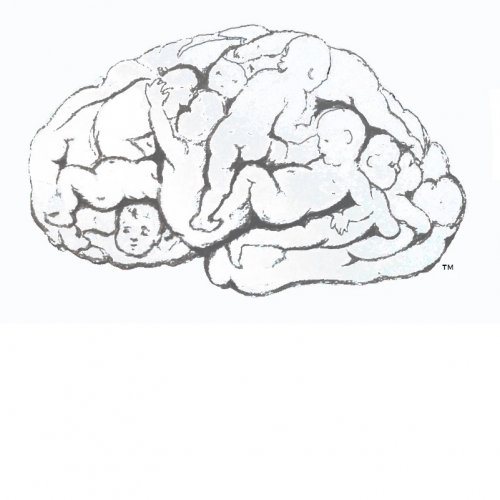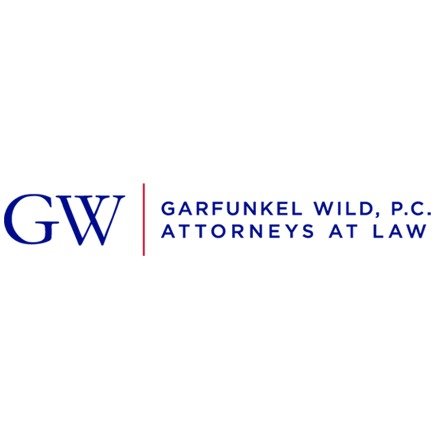Best Licensing Lawyers in New York
Share your needs with us, get contacted by law firms.
Free. Takes 2 min.
Or refine your search by selecting a city:
List of the best lawyers in New York, United States
United States Licensing Legal Questions answered by Lawyers
Browse our 1 legal question about Licensing in United States and read the lawyer answers, or ask your own questions for free.
- How do I legally protect my idea before selling or licensing it to a company?
- I have a makeup product idea that I want to sell or license, not the product itself. It is influenced by a product that was recently launched. Therefore, I want to sell/license to the company that launched said product. After some research, I contacted a patent attorney who explained that... Read more →
-
Lawyer answer by P.O OHIKHENA & Co
Good day,A patent will not be applicable since it's still an idea. You can go into an MOU(Memorandum of understanding) with the said company and also an NDA.You can contact me for my insight. Visit our profile and send us...
Read full answer
About Licensing Law in New York, United States
Licensing law in New York refers to the rules and regulations that govern the granting, renewal, suspension, and revocation of various licenses. These licenses may be required for individuals or businesses to legally engage in certain activities or professions within the state. Common areas include professional licensing (such as attorneys, doctors, and real estate agents), business and occupational licensing (including restaurants, cosmetologists, and contractors), and specialized permits (like liquor licenses and taxi medallions). The purpose of licensing is to ensure public safety, maintain industry standards, and uphold consumer protection.
Why You May Need a Lawyer
There are many situations where legal advice may be necessary regarding licensing in New York. You might need help if you are applying for a new license or renewing an existing one, especially if the process is complex or highly regulated. If your license application has been denied, suspended, or revoked, a lawyer can help you appeal the decision or resolve any underlying issues. Legal representation may also be important if you face disciplinary action, allegations of misconduct, or if you are accused of operating without the proper license. In addition, you may require assistance interpreting licensing requirements for your business or profession, or if changes in law or regulations affect your compliance or qualifications.
Local Laws Overview
New York State has a comprehensive framework governing licensing at both the state and local levels. Many professions and businesses are regulated by specific state agencies, such as the Department of State, the State Liquor Authority, the Department of Health, and the Department of Education. Local municipalities, such as New York City, have their own licensing bodies and requirements, which may be stricter or different from those at the state level. Key aspects include application requirements, background checks, proof of qualifications, ongoing compliance, renewal processes, inspection protocols, and disciplinary procedures. It is important to identify which authority regulates your license, as rules can vary significantly depending on your profession or activity.
Frequently Asked Questions
What types of activities or professions require a license in New York?
Many professions and activities require a license in New York, including but not limited to real estate agents, attorneys, physicians, nurses, teachers, cosmetologists, barbers, food service establishments, liquor sales, contractors, and many more.
Who governs licensing for various professions in New York?
Licensing may be handled by state agencies such as the Department of State, Department of Education, Department of Health, or the State Liquor Authority. Local authorities may also have their own rules and boards for specific types of businesses.
How can I apply for a professional or business license in New York?
The application process varies depending on the license. Typically, it involves submitting an application, providing proof of qualifications, passing background checks, and paying applicable fees. Detailed requirements are provided by the specific regulatory agency or authority.
What should I do if my license application is denied?
If your license application is denied, you usually have the right to request a hearing or file an appeal. Consulting with a lawyer can help you understand your rights, review the reasons for denial, and assist in preparing your appeal.
What happens if my license is suspended or revoked?
A suspended or revoked license often means you must stop engaging in the licensed activity until the issue is resolved. You may be able to contest the action at an administrative hearing or follow steps prescribed by the licensing authority to reinstate your license.
How often do licenses need to be renewed in New York?
Renewal periods differ by license type. Some require annual renewal, while others may be valid for several years. It is important to track expiration dates and submit renewal applications on time to avoid lapses.
Can I transfer a professional license from another state to New York?
In some cases, New York allows reciprocity or endorsement agreements with other states, but you must meet state-specific requirements, which can include additional exams, background checks, or documentation.
What are common reasons for license suspension or revocation in New York?
Common reasons include violations of state or local regulations, fraud or misrepresentation in the application process, criminal convictions, failure to maintain standards of practice, or operating without a valid license.
What are the consequences of operating without a required license?
Operating without a license can result in fines, penalties, orders to cease operations, denial of future license applications, and in some cases, criminal charges.
Do I need a lawyer to handle my licensing issue?
While not always required, a lawyer with experience in licensing law can be beneficial, especially if you face denial, suspension, revocation, disciplinary actions, or complex compliance issues.
Additional Resources
- New York Department of State Division of Licensing Services - for occupational and business licenses - State Education Department Office of the Professions - for professional licensing in healthcare, education, and other regulated fields - State Liquor Authority - for liquor license matters - New York City Department of Consumer and Worker Protection - for licenses required within New York City - New York State Department of Health - for healthcare facility licensing - Local city and county clerk offices - for local business permits and licenses It can also be helpful to consult trade associations, professional organizations, and legal aid societies for information and support.
Next Steps
If you need legal assistance with a licensing matter in New York, start by identifying the specific license or permit at issue and gathering all relevant documents, such as application forms, communication from regulatory bodies, and supporting materials. Research which agency or authority oversees your license. If you encounter problems or have questions, consider consulting with an attorney experienced in licensing law. Many lawyers offer initial consultations, where they can evaluate your case and recommend a course of action. Being proactive and informed can help you resolve issues efficiently and protect your legal rights.
Lawzana helps you find the best lawyers and law firms in New York through a curated and pre-screened list of qualified legal professionals. Our platform offers rankings and detailed profiles of attorneys and law firms, allowing you to compare based on practice areas, including Licensing, experience, and client feedback.
Each profile includes a description of the firm's areas of practice, client reviews, team members and partners, year of establishment, spoken languages, office locations, contact information, social media presence, and any published articles or resources. Most firms on our platform speak English and are experienced in both local and international legal matters.
Get a quote from top-rated law firms in New York, United States — quickly, securely, and without unnecessary hassle.
Disclaimer:
The information provided on this page is for general informational purposes only and does not constitute legal advice. While we strive to ensure the accuracy and relevance of the content, legal information may change over time, and interpretations of the law can vary. You should always consult with a qualified legal professional for advice specific to your situation.
We disclaim all liability for actions taken or not taken based on the content of this page. If you believe any information is incorrect or outdated, please contact us, and we will review and update it where appropriate.
Browse licensing law firms by city in New York
Refine your search by selecting a city.
















